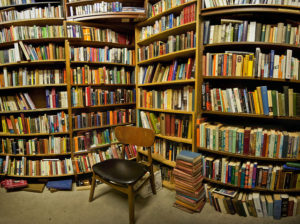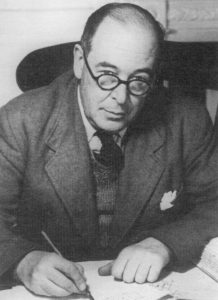 C. S. Lewis’s An Experiment in Criticism is a surprisingly good read. I say “surprisingly” because I expected a heavy tome that would be hard to understand. It isn’t that at all. I drew from it in my previous Lewis post, showing how he clearly differentiates between the unliterary and the literary. He notes that the majority of people fall into the first category.
C. S. Lewis’s An Experiment in Criticism is a surprisingly good read. I say “surprisingly” because I expected a heavy tome that would be hard to understand. It isn’t that at all. I drew from it in my previous Lewis post, showing how he clearly differentiates between the unliterary and the literary. He notes that the majority of people fall into the first category.
A false implication can arise from that division. People may think Lewis is being a snob. That’s not the case, and in the second chapter, he clarifies the distinction. It is wrong, he instructs, to believe that the unliterary belong to some kind of rabble. Critics, he says,
accuse them of illiteracy, barbarism, “crass,” “crude,” and “stock” responses which (it is suggested) must make them clumsy and insensitive in all the relations of life and render them a permanent danger to civilisation.
Lewis disagrees. Rather, those who are included in the many who are not attracted to great literary works “include certain people who are equal or superior to some of the few in psychological health, in moral virtue, practical prudence, good manners, and general adaptability.”
 So Lewis doesn’t classify the literary as the best people in society by virtue of their reading habits. There are other factors to consider.
So Lewis doesn’t classify the literary as the best people in society by virtue of their reading habits. There are other factors to consider.
Some of those in the literary category may not be as virtuous and emotionally fit as those they may think of as their inferiors. In fact, if one begins to divide humanity into inferior and superior classes solely by reading tastes, one has created a false division and revealed the sin of pride in oneself.
Lewis warns,
And we all know very well that we, the literary, include no small percentage of the ignorant, the caddish, the stunted, the warped, and the truculent. With the hasty and wholesale apartheid of those who ignore this we must have nothing to do.
Lewis then goes on to catalogue the problems of some in the literary class. While one would expect the literary to have “a profound and permanent appreciation of literature,” they may not at all. Some have become so professionalized that they read only out of duty anymore. He writes in particular of “overworked reviewers, getting through novel after novel as quickly as they can, like a schoolboy doing his ‘prep.'”
He feels for people like that because they may have begun their literary journey in joy but now consider it mere work.
The text before them comes to exist not in its own right but simply as raw material; clay out of which they can complete their tale of bricks. Accordingly we often find that in their leisure hours they read, if at all, as the many read.
Another branch of the literary are simply status seekers. They grew up in families and circles where they were expected to read only the “approved literature, especially the new and astonishing works, and those which have been banned or have become in some other way subjects of controversy.”
So, as one of that literary class, Lewis has no problem seeing the pitfalls that some fall into. He rejects the idea of literary people naturally being the best in society.
This is what I’ve come to expect from Lewis. He never lost touch with the ordinary man or talked down to him. All one has to do is read his letters to that multitude who wanted his advice; his humility shines throughout his responses.
More on this next week.
